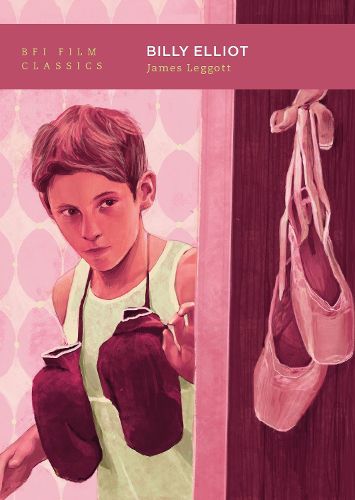Readings Newsletter
Become a Readings Member to make your shopping experience even easier.
Sign in or sign up for free!
You’re not far away from qualifying for FREE standard shipping within Australia
You’ve qualified for FREE standard shipping within Australia
The cart is loading…






Set against the turbulent backdrop of the UK miners' strike (1984-5), Billy Elliot (2000) follows eleven-year-old Billy as he pursues his dream of becoming a ballet dancer. Hailed for its heartfelt portrayal of working class life and its powerful challenge to gender stereotypes, Stephen Daldry's film is recognised today as a significant contribution to the tradition of British social-realist cinema.
James Leggott's insightful study explores the creative forces behind Billy Elliot's development, drawing from interviews with many of the core production team, such as the screenwriter Lee Hall, the choreographer Peter Darling and the composer Stephen Warbeck. Leggott identifies influences from the worlds of theatre, dance, photography and music, including inspirations specific to the North East of England, and calls attention to the film's innate musicality in its bold and playful combinations of soundtrack and action, with songs by Marc Bolan and T. Rex, The Clash and The Jam among others. Tracing Billy Elliot's global impact and its remarkable afterlife as a hit stage production, Leggott makes a case for the film's enduring significance in British cinema history.
$9.00 standard shipping within Australia
FREE standard shipping within Australia for orders over $100.00
Express & International shipping calculated at checkout
Set against the turbulent backdrop of the UK miners' strike (1984-5), Billy Elliot (2000) follows eleven-year-old Billy as he pursues his dream of becoming a ballet dancer. Hailed for its heartfelt portrayal of working class life and its powerful challenge to gender stereotypes, Stephen Daldry's film is recognised today as a significant contribution to the tradition of British social-realist cinema.
James Leggott's insightful study explores the creative forces behind Billy Elliot's development, drawing from interviews with many of the core production team, such as the screenwriter Lee Hall, the choreographer Peter Darling and the composer Stephen Warbeck. Leggott identifies influences from the worlds of theatre, dance, photography and music, including inspirations specific to the North East of England, and calls attention to the film's innate musicality in its bold and playful combinations of soundtrack and action, with songs by Marc Bolan and T. Rex, The Clash and The Jam among others. Tracing Billy Elliot's global impact and its remarkable afterlife as a hit stage production, Leggott makes a case for the film's enduring significance in British cinema history.